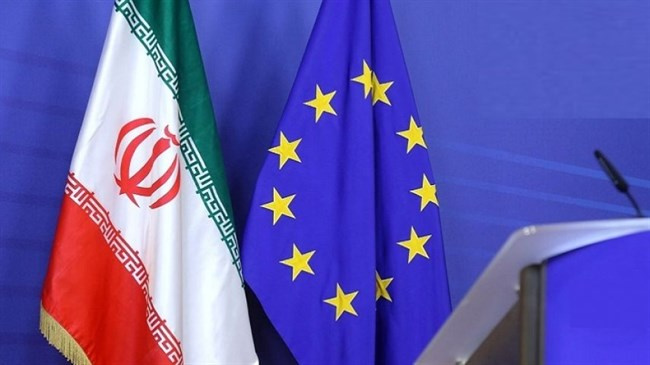Time is ripe for Iran, Europe to set up strategic partnership

By: Hossein Ziaee
Current rapid changes and developments in different international arenas are practically and inevitably pushing the world’s political geography and former borders — drawn between countries — toward modern forms and frameworks.
Trump, as a leader posing the biggest threat to global order, is particularly exposing the international system and world countries to the redefinition and revision of two important concepts: 1. national security; and 2. national interests.
In pre-Trump era, the formation of strategic partnership between Iran and Europe was nothing but a simplistic political delusion. At present, however, European strategists and analysists describe the issue, more than before, as a noteworthy political hypothesis and are discussing it more seriously.
A brief glance at frequent official announcements of support by most of European political, economic and military officials for the Joint Comprehensive Plan of Action (JCPOA) over the past few months confirms that Europeans have come to a strategic conclusion about their age-old relations with Iran and the issue of preserving the JCPOA.
This has upset Trump’s US and its regional partners.
Currently, most of the political analyses by Europeans indicate that despite fundamental differences in the attitudes adopted by Iran and Europe toward different issues, the two sides can become strategic partners in the international arena. These analyses propose similar model for Europe’s relations with Iran that is being used in Europeans’ strategic cooperation with China. Despite the essential differences they have with each other in some of their political stances, China and Europe have practically turned into strategic partners.
Perhaps the most important pillar of such a hypothesis is the JCPOA and its preservation through expanded cooperation between Iran and Europe.
After four decades of ups and downs in political relations between Europe and Iran – an important player in the Middle East – the JCPOA has now become a strong foundation on which the two sides can build up mutual political trust.
This, solely, is enough to give the JCPOA’s enemies — including Trump’s US, Israel and Saudi Arabia — sufficient excuses to launch a vicious political campaign against the deal to ditch it.
This comes as Europe is, more than ever, leaning towards the probable expansion of strategic cooperation with Iran due to three main practical and behavioristic reasons.
These three reasons are manifested in the stances adopted by the US, Israel and Saudi Arabia and their different practical measrures aimed at changing the present international and regional order in their favor.
Washington is unilaterally challenging and destroying the integrity of international treaties to enforce America-first foreign policy. Tel Aviv is unilaterally undermining peace in Palestine, which is the most important security and political issue between the West and Muslim world. Riyadh is, by its tension-generating unilateralism and expansionism pushing the entire Middle East and, particularly, the Persian Gulf, which is the the world’s main energy center and biggest investment market, toward destruction through invading Yemen and besieging Qatar.
The European Union, which has placed maintaining the global stability on its agenda as its first strategic priority to promote unity between its — soon to be — 27 member states, is currently facing grave political, economic and security threats posed by the US, Israel and Saudi Arabia.
Washington, Tel Aviv and Riyadh have begun to gradually form an opposition bloc against Europe, which is the greatest international obstacle to their illegitimate demands.
Thus, the main policy of the three troublemaking powers is to gradually exclude the EU from the security, economic and political arenas in which they are the main players.
At present, the EU’s policy to support countries’ rights and respect international agreements and treaties has annoyed the three supporters of unilateralism and is steadily widening the gap between them and Europe.
All these make a strategic revision in relations between Iran and Europe a necessary and inevitable. Iran is the most stabilizing force in the Middle East and a guardian and promoter of multilateralism in the region.
This comes as Iran has enough reasons and the capacity to reconsider its relations with Europe and expand its strategic cooperation with the EU.
For more than four decades, Iran has not been able to develop full relations with Europe due to the hostile policies adopted by the US, Israel and Saudi Arabia in the Western front.
At present, Iran and Europe have the opportunity to prepare the ground for the formation of a strategic partnership in view of the gradual self-exclusion of the US and Israel from the West and the EU’s departure from the anti-Iran stances of the Western bloc.
Today, Iran and Europe, along with Russia and China, are the main pillars supporting a multilateral world order; and the JCPOA is linking to with each other.
It is crystal clear that by strengthening these pillars and preserving their link, the promoters of warmongering and unilateralism — the US, Israel and Saudi Arabia — will be forced into retreat and because of the failure of their plans.
Hossein Ziaee is a freelance journalist.
Source: Iran Daily

